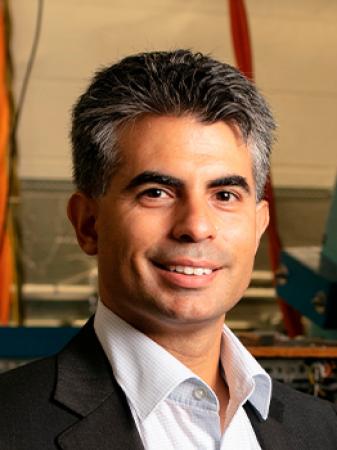
Carlos Paz-Soldan
Carlos Paz-Soldan
Columbia University
Tuesday, October 26, 2021
3:00pm
Abstract: The integration of an exhaust solution with a high performance core plasma has been highlighted in recent US community activities as a key challenge along the tokamak path to fusion energy production. Recent experiments in the DIII-D tokamak have motivated serious consideration of the ‘negative triangularity tokamak’ concept as a solution to this challenge. This presentation will highlight the benefits (and drawbacks) of this concept, from both the fusion core and power exhaust point of view. In order to demonstrate integration of the core and edge solution in DIII-D, a temporary power exhaust system is planned to be deployed on the DIII-D tokamak next summer. With this system in place, the DIII-D tokamak will be ideally placed to address several key gap issues in the negative triangularity concept and qualify its value for exhaust and confinement integration.
Bio: Dr. Carlos Paz-Soldan is an Associate Professor in the Applied Physics and Applied Mathematics department of Columbia University, a position he began in 2021. Previously, he was a Scientist with General Atomics working primarily in the DIII-D research team. Dr. Paz-Soldan has contributed to a broad range of topics in tokamak transient control. These include: understanding the interaction of tokamak plasmas with non-axisymmetric fields used to control core and edge instabilities; the measurement and control of relativistic electron populations; and the conceptualization and advancement of novel actuators for both core and edge transient control. Dr. Paz-Soldan is the recipient of the Rosenbluth Doctoral Thesis Prize in 2013 and the Stix Early Career Award in 2021, both from the American Physical Society.